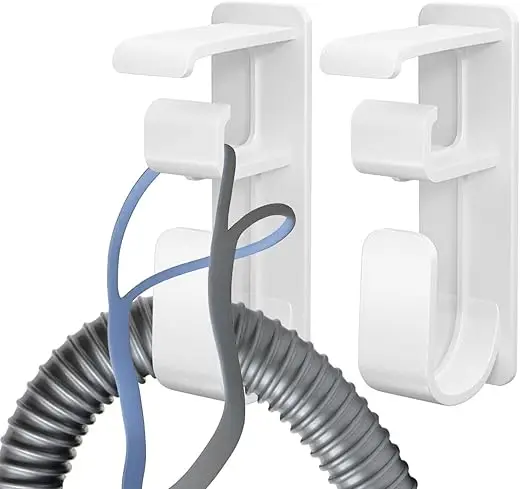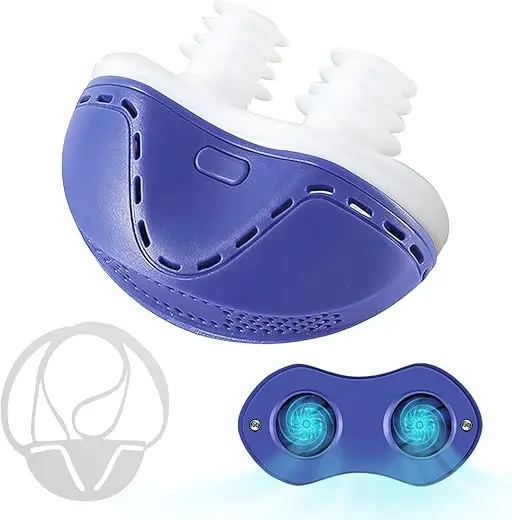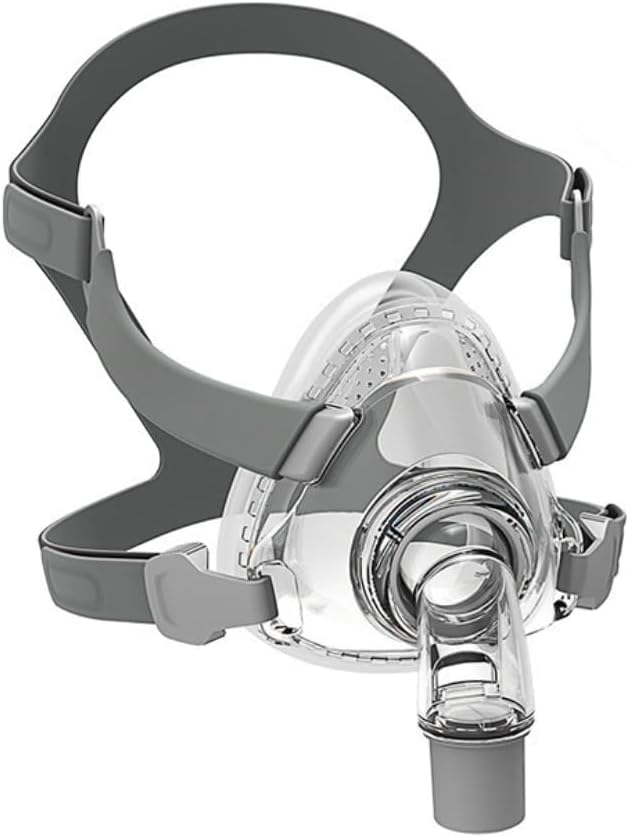Key Takeaways
- Zepbound (tirzepatide) may significantly improve sleep apnea symptoms through weight loss
- Clinical studies show up to 55% reduction in sleep apnea severity
- FDA approved Zepbound for chronic weight management, with sleep apnea benefits as a bonus
- Most patients see sleep apnea improvements within 3-6 months of treatment
- Zepbound doesn’t replace CPAP therapy but may reduce dependence on it
What is Zepbound?
Zepbound is the brand name for tirzepatide, a revolutionary medication originally developed for type 2 diabetes that has shown remarkable effectiveness for weight loss. Approved by the FDA in November 2023 for chronic weight management, Zepbound works by mimicking two hormones (GIP and GLP-1) that regulate appetite and blood sugar.
The medication is administered as a once-weekly injection and has demonstrated average weight loss of 15-20% of body weight in clinical trials. This substantial weight reduction has profound implications for sleep apnea sufferers, as excess weight is one of the primary risk factors for obstructive sleep apnea (OSA).
The Connection Between Zepbound and Sleep Apnea
How Weight Loss Impacts Sleep Apnea
Obstructive sleep apnea occurs when excess tissue in the throat blocks the airway during sleep. Excess weight, particularly around the neck and throat area, significantly increases this risk. Even a 10% reduction in body weight can significantly improve sleep apnea severity.
Clinical Evidence
Recent studies have shown impressive results for Zepbound’s impact on sleep apnea:
- SURMOUNT-OSA Trials: Two phase 3 clinical trials specifically examined tirzepatide’s effects on moderate-to-severe OSA
- Participants experienced an average 55% reduction in apnea-hypopnea index (AHI)
- 43% of participants achieved disease resolution (AHI less than 5 events per hour)
- Improvements were seen regardless of CPAP use
Timeline for Improvement
Most patients begin experiencing sleep apnea improvements according to this timeline:
- Weeks 4-8: Initial weight loss begins, mild symptom improvement
- Months 2-3: Noticeable reduction in snoring and daytime fatigue
- Months 3-6: Significant AHI reduction, potential CPAP pressure adjustments needed
- Months 6-12: Maximum benefits typically achieved with continued use
Benefits of Zepbound for Sleep Apnea Patients
Primary Benefits
- Reduced AHI scores: Fewer breathing interruptions during sleep
- Decreased CPAP pressure requirements: Many users need lower pressure settings
- Improved sleep quality: Better REM sleep and fewer awakenings
- Enhanced daytime energy: Reduced fatigue and improved concentration
- Lower cardiovascular risk: Weight loss reduces strain on the heart
Secondary Benefits
- Improved blood pressure control
- Better glucose management
- Reduced inflammation
- Enhanced mobility and exercise capacity
- Improved mood and mental health
Who Should Consider Zepbound for Sleep Apnea?
Ideal Candidates
Zepbound may be appropriate for individuals who:
- Have a BMI of 30 or higher (or 27+ with weight-related conditions)
- Suffer from moderate to severe obstructive sleep apnea
- Struggle with CPAP compliance or seek to reduce CPAP dependence
- Have not achieved adequate weight loss through diet and exercise alone
- Do not have contraindications to GLP-1/GIP medications
Not Recommended For
- Individuals with personal or family history of medullary thyroid carcinoma
- Patients with Multiple Endocrine Neoplasia syndrome type 2
- Pregnant or breastfeeding women
- Those with severe gastrointestinal disorders
- Individuals with type 1 diabetes
Potential Side Effects and Considerations
Common Side Effects
- Nausea (especially during dose escalation)
- Diarrhea or constipation
- Vomiting
- Decreased appetite
- Abdominal pain
- Injection site reactions
Managing Side Effects
Most side effects are mild and improve over time. Strategies include:
- Starting with a low dose and gradually increasing
- Taking the injection at bedtime
- Eating smaller, more frequent meals
- Staying well-hydrated
- Working closely with your healthcare provider
Zepbound vs. CPAP: Not a Replacement
It’s crucial to understand that Zepbound is not a replacement for CPAP therapy. Instead, it works as a complementary treatment:
Continuing CPAP Use
- Continue using CPAP as prescribed while on Zepbound
- Monitor for needed pressure adjustments as you lose weight
- Work with your sleep specialist to reassess your needs
- Some patients may eventually reduce CPAP dependence, but this varies
Combined Approach Benefits
Using Zepbound alongside CPAP therapy offers the best outcomes:
- Immediate symptom relief from CPAP
- Long-term improvement through weight loss
- Reduced cardiovascular risk from both treatments
- Better overall health outcomes
Cost and Insurance Coverage
Pricing
- Retail price: Approximately $1,000-1,200 per month
- Manufacturer savings programs available
- Costs vary by pharmacy and location
Insurance Considerations
- Coverage varies significantly by plan
- Prior authorization often required
- May need to demonstrate failed weight loss attempts
- Sleep apnea diagnosis may strengthen approval case
- Check both medical and pharmacy benefits
Getting Started with Zepbound
Steps to Take
- Consult your healthcare provider: Discuss your sleep apnea and weight management goals
- Complete health screening: Ensure you’re a good candidate
- Coordinate care: Involve both your primary care provider and sleep specialist
- Start treatment: Begin with the lowest dose and follow titration schedule
- Monitor progress: Regular follow-ups and sleep studies to track improvement
Questions for Your Doctor
- Is Zepbound appropriate given my medical history?
- How might it interact with my current medications?
- What monitoring will I need during treatment?
- How will we track my sleep apnea improvement?
- What’s the plan for adjusting my CPAP settings?
Success Stories and Patient Experiences
Many patients report life-changing results:
- Reduced CPAP pressure settings or elimination of CPAP need
- Improved energy and daytime functioning
- Better blood pressure and glucose control
- Enhanced quality of life and self-confidence
- Improved relationships due to reduced snoring
The Bottom Line
Zepbound represents a promising advancement in sleep apnea management through its significant weight loss effects. While not a cure-all or CPAP replacement, it offers hope for patients struggling with obesity-related sleep apnea. The combination of Zepbound with traditional sleep apnea treatments may provide the best path forward for many patients. Always work closely with your healthcare team to determine if Zepbound is right for your situation. With proper medical supervision and realistic expectations, this medication could be a valuable tool in your sleep apnea treatment journey.



